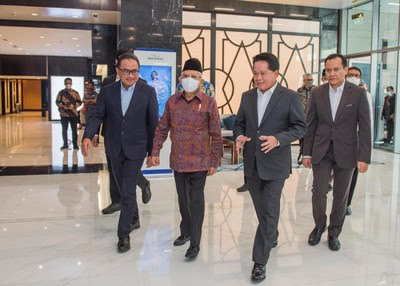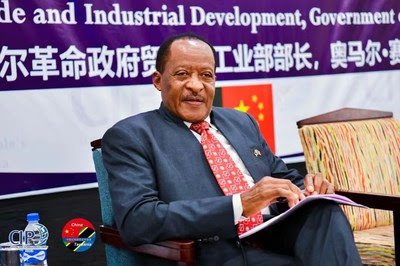China may be reviving key elements of its 20th-century planned economy to ensure domestic stability as a way to reduce dependence on the West for consumer commodities, particularly foodstuffs affected by the war in Ukraine, experts say.
Beijing is promoting the development of supply and marketing cooperatives for agricultural products and state-run canteens to help the government control the supply of key foodstuffs as relations between China and Western democracies deteriorate. The canteens are similar to college cafeterias with limited offerings and prices deemed affordable by officials in Beijing.
Xia Ming, a professor of political science at the City University of New York, told VOA Mandarin in a phone interview on November 4, “The emergence of supply and marketing cooperatives is often the product of economic scarcity. Today, China is obviously facing a large number of economic crises. If these crises lead to economic scarcity, the country must control the situation, especially these basic supplies, for stability.”
Wen Guanzhong, an emeritus professor of economics at Trinity College, told VOA Mandarin by phone on November 4 that “In general, because (China’s president) Xi Jinping knows that he is actually taking a route that is the opposite of the route of deepening comprehensive marketization, he also knows that China’s relations with countries around the world, especially Western countries, will become increasingly tense. He hopes to reestablish the CCP’s (Chinese Communist Party’s) overall control of society including control over supply and sales.”
Xie Tian, a business professor at the University of South Carolina Aiken, said in an interview with VOA Mandarin on November 4 that, “I think the CCP’s ambition and desire to use force against Taiwan may be implemented very soon. Canteens and supply and marketing cooperatives can control social materials and food supply during war times, which is the best way for China.”
In Hubei province alone, local officials have restored and rebuilt 1,373 grassroots supply and marketing cooperatives with 452,000 members, according to a report last month in the official Hubei Daily. Officials told the news outlet that by 2025, the cooperatives will have 1.5 million members.
In 2014, there were 696 co-ops in the province, a decrease of 61% from the peak of 1,800 in 1984, according to a report in the November 2 state-affiliated Beijing Business Daily (BBD). Nationwide, the BBD reported, there are currently 31,000 supply and marketing cooperatives in China, with nearly 400,000 outlets.
At the 20th National Congress of the Communist Party of China, which closed on October 22, Liang Huiling, who led the All China Federation of Supply and Marketing Cooperatives, was promoted to membership in the CCP’s Central Committee. After the congress, the agency immediately issued a recruitment bulletin, which the experts saw as a sign that China’s future economic development will be led by a government bent on improving self-sufficiency and economic security.
Global food crisis
China is one of the world’s leading food importers. According to a 2018 report by CSIS, a Washington-based think tank, China’s food imports exceed its exports, resulting in a food trade deficit.
Xia said China is looking for alternative grain sources because of tense relations with Western exporters such as the United States, Canada and Australia. Beijing’s fear is that if these exporting countries reduce sales to China for geopolitical reasons or to meet their own domestic demands, prices could rise throughout China and cause domestic dissatisfaction.
According to Reuters, the IMF said in September that disruptions to global grain flows caused by the war in Ukraine have prompted the worst food security crisis since the one following the 2007-2008 global financial meltdown.
Xia said China’s refusal to publicly condemn Russia for invading Ukraine in February has exacerbated Western democracies’ dissatisfaction with China.
“When China wants to team up with Russia and fight against the West, I think it will set itself up for a lot of crises of food and energy security,” he told VOA Mandarin. “So, if it wants to be hostile to Western countries or use wolf warrior diplomacy, I think it has to deal with (the consequences).”
Supply and marketing cooperatives for agricultural products first appeared in China in the 1950s when Beijing planned and controlled the economy. When Deng Xiaoping proposed reform and opening of the economy in 1978, the supply and marketing cooperatives began weakening, but they never disappeared.
Under President Xi Jinping’s leadership, the Chinese government has called for the reform of supply and marketing cooperatives as part of his gradual tightening of economic control.
In 2021, Beijing proposed a pilot project of “three-in-one” comprehensive cooperation in production, supply and marketing of foodstuffs that included loans to farmers and distributors. Some 49,000 state employees oversee the entire system of supply and marketing cooperatives starting at the county level, according to the official website.
According to data for the first half of 2022 from the All-China Federation of Supply and Marketing Cooperatives, the sales of the supply and marketing cooperatives in the whole system exceeded $435 billion (2.9 trillion yuan) – a year-on-year increase of 19.1%. In 2021, sales totaled about $926.9 billion (6.26 trillion yuan), according to official figures.
Concerned consumers
Consumers are worried that Beijing’s new focus on supply and marketing cooperatives and canteens may sound a death knell for current market-oriented shops and restaurants, both contributors to growth of the private economy.
According to Chinese media reports, Chinese officials last week attempted to assuage those concerns, saying that restarting the supply and marketing cooperatives will allow them “to take advantage of their many outlets, enhance the function of the county’s circulation service network, and promote rural revitalization.”
The officials added that community pilot projects, including the construction of canteens, “are not mandatory, not everything on the file must be tried.”
Wen said that difference between the cooperatives of old and today “depends on how private enterprises are treated in the future, whether they are restricted or whether state-run supply and marketing cooperatives are given privileges such as the power of monopoly.”
Xie believes that the state-led economy lacks the vitality of the market economy, which will ultimately affect the living standards of Chinese residents.
He said, “Just like the canteens and supply and marketing cooperatives in the old days, it is impossible to have the vitality of the market economy after returning to the planned economy. … Only the most basic meals, or the most basic food and services can be provided, which will definitely affect the living standards of the Chinese people.”
Source: Voice of America


